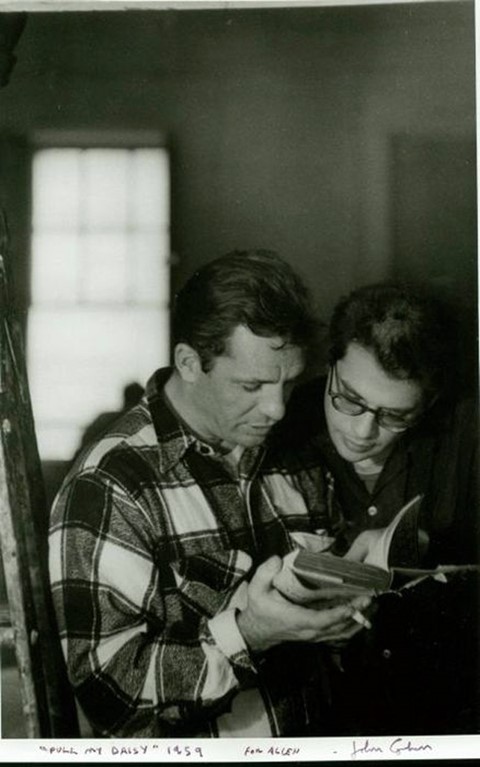The renegade literary idols forged an anti-fashion look all of their own as an antidote to 1950s teenage consumer culture
As pioneers of the literary sub-cultural Beat movement of 1950s America, Allen Ginsberg and Jack Kerouac’s vigorously anti-materialistic convictions underpinned arguably the first anti-fashion trend at a time when fast fashion began to reach the mainstream. The writers, although differed in their style choices, Kerouac wearing worn-out leather jackets and Ginsberg opting for crumpled, miss-matching suit jackets and khaki workpants, had similar values when it came to clothing, or lack of it.
Both men appeared to view clothing as constrictive. Dean Moriarty, a central character in Kerouac’s classic Beat novel On The Road, talks of “disemburdening” oneself from the “constraints” of clothes as he hurtles freely down the open road leaving behind him the chokehold of social norms and expectations, while Ginsberg opted for the more literal gesture of routinely stripping on stage at poetry readings as he endeavoured to connect with his “naked original”.
In his book, The Bop Apocalypse: the religious visions of Kerouac, Ginsberg, and Burroughs, John Lardas explains the Beat’s propensity for public nakedness as, “an exhibition of natural physicality and a symbolic gesture of repossessing an unadorned, uncorrupted self”.
The renegade literary idols forged an anti-fashion look of their own as an antidote to developing 1950s teenage consumer culture. The Beat’s look had an academic intelligence and genuinely rebellious attitude; Crumpled tees, casual trousers like jeans and khaki work pants, thrifted leathers or blazers, topped off with thick-rimmed spectacles became synonymous with contemporary alt culture at its very conception.
“In a now materialistic and conformist society, adolescents were struggling to find their identities. The fashion industry had finally perfected clothing that was wrinkle-free and an interesting response to this was the wearing of jeans and leather jackets that moulded to the body and showed permanent creases.” – The Mid-Atlantic Region, Robert P. Marzec.
Howl, a biopic based on the tale of the obscenity trials that surrounded the publication of Ginsberg’s famously explicit poem of the same name, is at UK cinemas from 25 February.
Text by Laura Havlin
